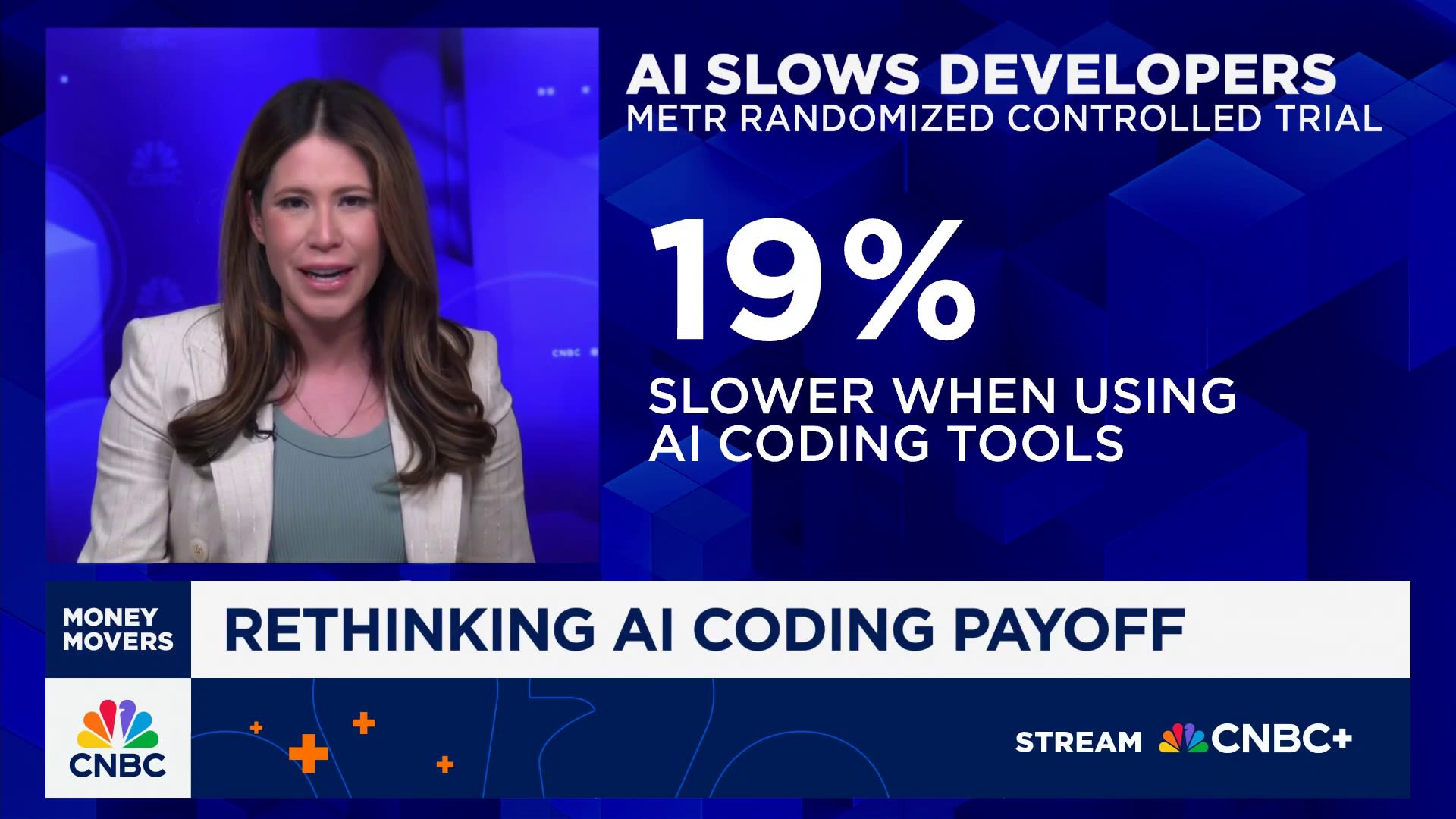Recent discussions on the CNBC program “Money Movers” have highlighted significant concerns regarding the efficacy of artificial intelligence (AI) in enhancing productivity. Deirdre Bosa, a prominent journalist, delved into how organizations are reassessing their AI coding strategies as evidence suggests that anticipated productivity gains may not be materializing as expected.
As companies increasingly integrate AI technologies into their operations, initial optimism is giving way to a more cautious outlook. The surge in AI adoption was driven by the promise of streamlined processes and enhanced efficiency, but recent findings indicate that many businesses are encountering challenges in achieving these goals.
Bosa noted that while AI has the potential to revolutionize industries, the reality is proving more complex. Some firms are experiencing a disconnect between the investment made in AI technologies and the tangible benefits derived from them. This discrepancy raises critical questions about the long-term viability of AI as a productivity booster.
Challenges Facing AI Integration
Multiple organizations have reported that the implementation of AI systems often requires significant adjustments to existing workflows. As companies navigate these changes, the expected productivity improvements have not always been realized. In some cases, employees report feeling overwhelmed by the new technologies rather than empowered by them.
For instance, a recent survey indicated that nearly 40% of employees in tech-oriented firms believe that AI tools complicate their daily tasks instead of simplifying them. This sentiment reflects a broader trend where the promise of efficiency clashes with the realities of adapting to advanced technologies.
Bosa emphasized that companies must critically evaluate their AI initiatives. Rethinking strategies may involve not only technical adjustments but also a cultural shift within organizations. Employees need to be equipped with the right training and support to fully leverage AI capabilities.
Future Outlook for AI and Productivity
Looking ahead, the conversation around AI productivity is far from settled. As companies reassess their approaches, there is a growing recognition that AI is not a one-size-fits-all solution. The potential for AI to enhance productivity remains, but it requires a thoughtful and strategic implementation plan.
Bosa’s insights suggest that leaders in business must engage in ongoing dialogue about the role of AI in their organizations. By fostering an environment where feedback is welcomed and adjustments can be made, companies may better harness the power of AI technologies.
In summary, as discussions surrounding AI productivity evolve, organizations are urged to take a more nuanced approach. The path forward involves not only embracing technology but also understanding the human elements that influence its success.





































































